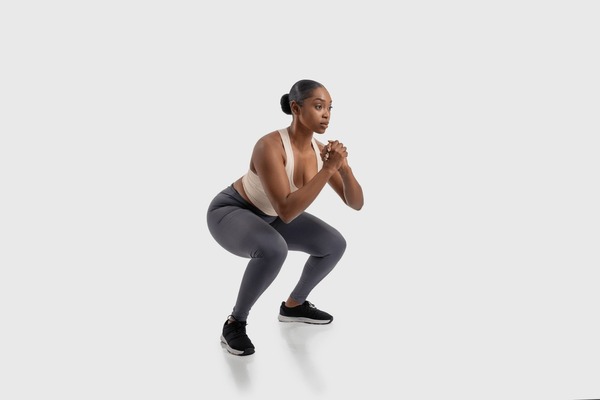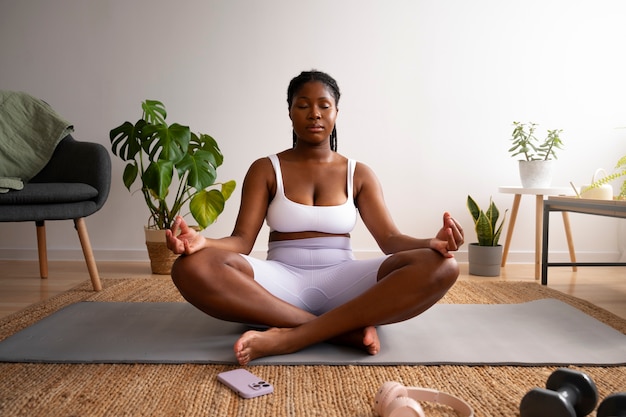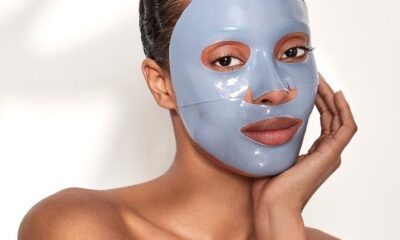Health
What Happens When You Quit Sugar for 7 Days

Ever caught yourself reaching for a sugary snack at any given time? or any slight inconvenience, you use that as an excuse to consume sugar. Some even go as far as having midnight snack, for others it might just be pure habit. You’re not alone. Sugar has a sneaky way of becoming a daily companion — especially in our country Nigeria where we have limited options of food and sugar has basically become part of our regular diet. Whether it’s that spoon of sugar in your morning tea or the slice of cake you didn’t plan for. But what really happens when you decide to quit sugar, even if it’s just for seven days? Here’s what your body might go through during a week without any sweet stuff.
Days 1–2

Withdrawal symptom from sugar
The first couple of days are usually the hardest, especially if your body is used to regular doses of sugar. Withdrawal symptoms like headaches, fatigue, intense cravings or mood swings, that’s if you are an emotional eater, might be triggered. Also you will begin to feel irritable or unusually tired. That’s because sugar causes a spike in dopamine (the feel-good hormone), and without it, your brain starts to protest— but don’t panic, it’s just your body adjusting.
Days 3–4
By the middle of the week, something begins to shift. Your energy levels, which felt drained at the beginning, start to feel more stable. Instead of the usual sugar highs and crashes, your body starts using those stored fat and complex carbs for energy. You might also notice your cravings levels has decreased — your taste buds begin to reset, and suddenly, fruits taste sweeter than ever. A banana might feel like a treat!
Days 5–6

Increased concentration due to no sugar intake
This is when things start getting exciting. Many people report better sleep around Day 5. Without sugar constantly spiking your blood sugar levels, your body finds its rhythm again. You might wake up feeling more refreshed. Even mentally, there’s a boost too — you begin concentrate better and less brain fog. Those regular mood swings start to mellow out.
Day 7

Weight loss due to no sugar intake
By the seventh day, the benefits become more visible. Due to low calorie intake, you might begin to lose some weight, not only that but your skin will look more radiant, especially if you’ve been hydrating properly. Sugar is known to trigger inflammation, which can lead to breakouts, puffiness, or dullness. Cutting it out, even temporarily, can give your skin that boost and the break it needs. You may also notice easier digestion and less bloating. With fewer processed or fast foods in your system, your gut start to reset.
So, Is It Worth It?
Though the 7 days might seem short but I t’s enough to prove how strongly sugar can affect your body — and how amazing you can feel without it. It’s not about quitting sugar forever (unless you want to), but more about being mindful of how much you consume and where it’s coming from. Natural sugars in fruits are totally fine but added or industrial sugars in snacks, sodas, and sauces? Those are the ones to watch out for.
Final Thoughts
The first few days may seem difficult, but by Day 7, you will feel lighter and more in control of those unnecessary cravings. Once you experience how good it feels to have balanced energy, better sleep, and glowing skin — you just might want to keep going.
Health
Workout Routines That Support Bones Health

Strong bones depend on more than just calcium or supplements. Research shows that bones respond to physical stress: when muscles and weight-bearing activities challenge the skeleton, bone tissue becomes denser and stronger. To protect skeletal health over the long term, exercise should combine weight-bearing activity, resistance training, and balance work. Together, these exercises address the main risk factors for fractures: low bone density, weak muscles, and poor coordination.

Photo Credit – Google
Weight-bearing activity doesn’t need to be extreme to be effective. Regular brisk walking around neighbourhoods or local parks strengthens hips, legs, and spine, while climbing stairs or light jogging improves lower-body density. Dance classes, including Afrobeat or traditional Nigerian dances, provide varied movement patterns that engage muscles and improve coordination. Starting with 15–20 minutes per session, three to five days a week, and gradually increasing intensity or duration can deliver measurable benefits.

Photo Credit – Google
Resistance training plays a key role in maintaining strong bones. Gradually increasing weight or resistance helps muscles and bones adapt. Exercises such as squats and deadlifts target the hips, thighs, and spine, while lunges and step-ups build strength in the lower body and promote functional movement. Push-ups, pull-ups, and shoulder presses strengthen the upper body and spine. Two to three sessions per week covering all major muscle groups are sufficient. Free weights, resistance bands, or bodyweight exercises can all be effective depending on what equipment is available.

Photo Credit – Google
Balance is equally important because falls are a leading cause of fractures. Single-leg stands and heel-to-toe walking improve stability and coordination, while yoga, Tai Chi, or mobility exercises enhance control and complement other workouts. Integrating balance with strength and weight-bearing exercises provides a complete approach to bone health.
Common mistakes include relying solely on low-impact cardio such as swimming or cycling, which has little effect on bone density, and attempting high-impact exercises without preparation, which can increase injury risk. Effective routines should be planned, progressive, and performed consistently to build resilience safely.

Photo Credit – Google
A sample weekly schedule could include strength-focused exercises on Monday, such as squats or step-ups, deadlifts or hip-hinge movements, and push-ups or shoulder presses. Wednesday could focus on weight-bearing activity and balance through brisk walks, single-leg and heel-to-toe drills, and light dynamic movements. Friday can target functional strength with lunges or carries using household objects, core stability exercises, and stretching or yoga. This cycle can be repeated weekly, increasing load or complexity gradually.
Strong bones require intentional, evidence-based exercise. By combining weight-bearing activity, resistance training, and balance work, Nigerians can maintain bone density, reduce fracture risk, and improve overall skeletal resilience. Starting at your current fitness level, increasing load progressively, and including balance exercises will help protect bones for the long term.
Health
Disordered Eating Vs. Eating Disorder: Experts Explain The Differences And When To Seek Help

Disordered eating and clinical eating disorders are not interchangeable. Disordered eating refers to irregular or emotionally influenced habits around food: chronic dieting, skipping meals, rigid food rules, occasional binge episodes or persistent preoccupation with calories, weight or body shape. These habits may shift, but when repeated over time they often point to growing vulnerability.
Clinical eating disorders, by contrast, are diagnosed mental-health or medical conditions marked by persistent, patterned behaviours that impair physical health, mental wellbeing or daily functioning. Conditions such as anorexia nervosa, bulimia nervosa, binge‑eating disorder and other specified feeding or eating disorders fall into this category.

Image: Google
Evidence from Nigerian research confirms that disordered eating attitudes and risk for eating disorders are present among young adults and adolescents. In a study of more than 1,050 undergraduates from two higher‑education institutions in Lagos, roughly 16 percent scored positive on the EAT‑26 screening tool for disordered eating attitudes.
At a university in Ile‑Ife, a survey of female undergraduates found that 17.1 percent were classified as at high risk for eating disorders, based on the same screening instrument.
A more recent analysis among female undergraduates in Lagos found a lower prevalence of disordered eating (about 5 percent). Still, the study flagged a strong association between body-image dissatisfaction, body‑mass index (BMI) and disordered eating attitudes.
Adolescents are not exempt: a survey of 13 to 19-year-olds in Ibadan used screening tools to assess disordered eating behaviours and feeding/eating disorders. Results showed that 28.2 percent exhibited disordered eating behaviours, and a significant portion also met screening criteria for feeding/eating disorders.

Image credit: Google
Clinical, clearly diagnosed cases have also been documented. There’s a recorded instance of a 20-year-old undergraduate at a Nigerian university diagnosed with anorexia nervosa showing that what may start as dieting or food anxiety can escalate into serious health and psychiatric risk.
Because disordered eating and eating disorders exist within the Nigerian context, distinguishing between them matters. Persistent preoccupation with food, weight or body shape; regular dieting, bingeing or purging; emotional distress tied to eating; and disruption of everyday life are all red flags. When those signs persist, seeking professional support whether nutritional counselling, psychological therapy or medical care becomes essential.
Health
The Exercise That Keeps You Younger

If you’ve ever met someone in their fifties who moves like they’re still in their twenties, it’s likely they’ve discovered the simple habit that keeps the body from giving in to age: regular movement.

While fitness trends keep changing, one form of exercise has stayed constant in its benefits: strength training. It’s not about building bulky muscles or chasing a perfect body. It’s about keeping your bones strong, your joints stable, and your metabolism from slowing down. After the age of 30, the body naturally begins to lose muscle each year. That’s why everyday tasks, like climbing stairs or carrying groceries, start to feel heavier. Strength training helps reverse that.

Research supports this claim. People who lift weights or engage in resistance exercises have lower risks of diabetes, heart disease, and cognitive decline. But beyond the science, it’s about how it makes you feel. Nigerians juggling work, traffic, and family life know how draining each day can be. Even short sessions of body-weight squats, lunges, or push-ups a few times a week can recharge you better than most expensive wellness fads.

It also boosts your mood. Physical activity releases chemicals that help clear mental fog and lift your energy. It’s your body’s way of proving it still has strength to give.
You don’t need a gym to start. A mat, a pair of dumbbells, or even two water bottles will do. The goal is to stay consistent, to keep your body active enough to stay responsive.
Each push, lift, or stretch is a reminder that staying young isn’t about denying age; it’s about moving through it with strength.
-

 Celebrity News5 months ago
Celebrity News5 months agoToke Makinwa Shares Graceful Pregnancy Reveal
-

 Sex & Relashionships5 months ago
Sex & Relashionships5 months agoSigns You Have Abandonment Issue and How to Heal
-

 Models5 months ago
Models5 months agoDorothy Anador Celebrates Her Best Self in Birthday Photoshoot
-

 Music5 months ago
Music5 months agoKokopee Drops EP ‘All I Need It’s Kokopee
-

 Celebrity News5 months ago
Celebrity News5 months agoAsake Shows off New Hair on Stage
-

 Movies4 months ago
Movies4 months agoMovie Review: Task Official Trailer
-

 Top Xclusiv4 months ago
Top Xclusiv4 months agoItalian Designer Giorgio Armani Dies at 91
-

 Music4 months ago
Music4 months agoAyra Starr – Hot Body Video Review
-

 Celebrity Style4 months ago
Celebrity Style4 months agoEniola Badmus Creates a Deck-of-Cards Visual in Photoshoot
-

 Fashion5 months ago
Fashion5 months agoFive Mini Outfits From Esther Morgan That Are Screenshot Worthy
























